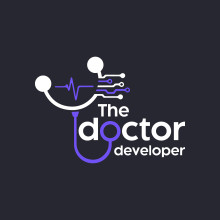Course description
Dermatology is a specialized branch of medicine that focuses on the study, diagnosis, and treatment of disorders and conditions related to the skin, hair, nails, and mucous membranes. As the body's largest organ, the skin serves as a protective barrier against external elements and plays a crucial role in maintaining overall health.
The field of dermatology encompasses a wide range of conditions, from common skin issues like acne, eczema, and psoriasis to more complex diseases such as skin cancers and autoimmune disorders. Dermatologists are medical professionals who specialize in understanding the structure and function of the skin and are trained to identify and manage various dermatological conditions.
Key aspects of dermatology include:
1. **Diagnostic Expertise:** Dermatologists employ a variety of diagnostic techniques, including visual examination, skin biopsies, and laboratory tests, to accurately identify and characterize skin conditions. The ability to differentiate between benign and malignant lesions is a critical skill in dermatological practice.
2. **Treatment Modalities:** Dermatologists utilize a diverse array of treatment modalities, ranging from topical medications and phototherapy to surgical procedures. They tailor treatment plans to the specific needs of each patient, considering factors such as the type and severity of the condition, the patient's medical history, and lifestyle.
3. **Cosmetic Dermatology:** In addition to medical dermatology, many dermatologists specialize in cosmetic dermatology, addressing aesthetic concerns such as wrinkles, scars, and pigmentation issues. Procedures like Botox injections, dermal fillers, and laser therapy fall under this category.
4. **Preventive Care:** Dermatologists play a crucial role in preventive care by educating patients about sun protection, skincare routines, and early detection of skin cancer. Regular skin examinations are recommended to identify potential issues at their earliest stages when they are most treatable.
5. **Interdisciplinary Collaboration:** Dermatologists often work collaboratively with other medical specialties, such as oncology, rheumatology, and infectious diseases, as many skin conditions have systemic implications and may be associated with underlying health concerns.
Dermatology is a dynamic and evolving field that combines medical, surgical, and cosmetic expertise to address a broad spectrum of dermatological issues. As our understanding of skin biology and pathology continues to advance, dermatologists remain at the forefront of delivering high-quality, patient-centered care to individuals of all ages.






